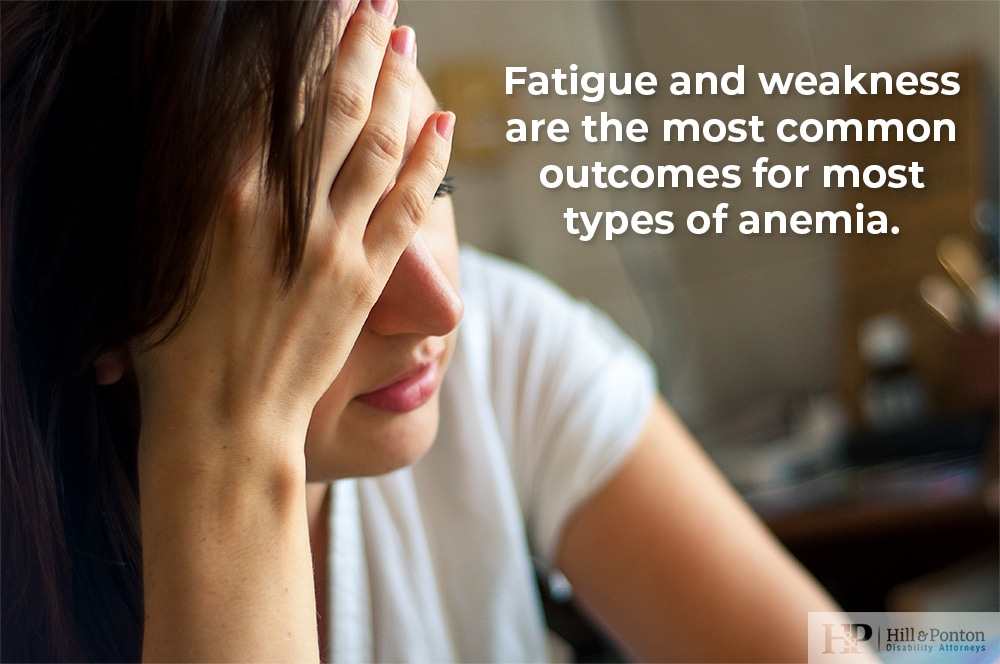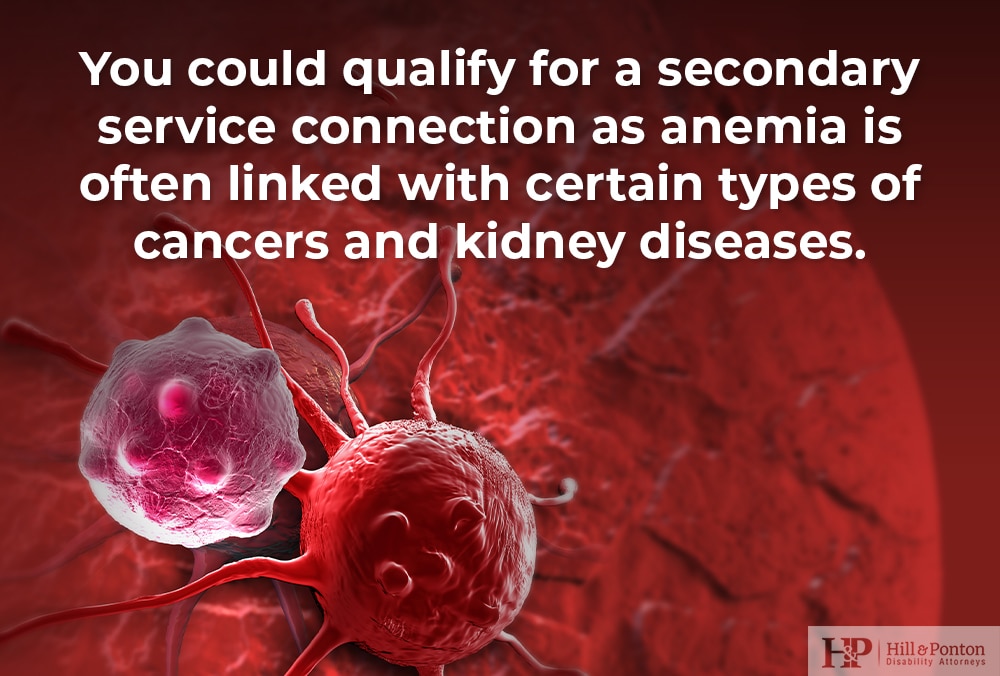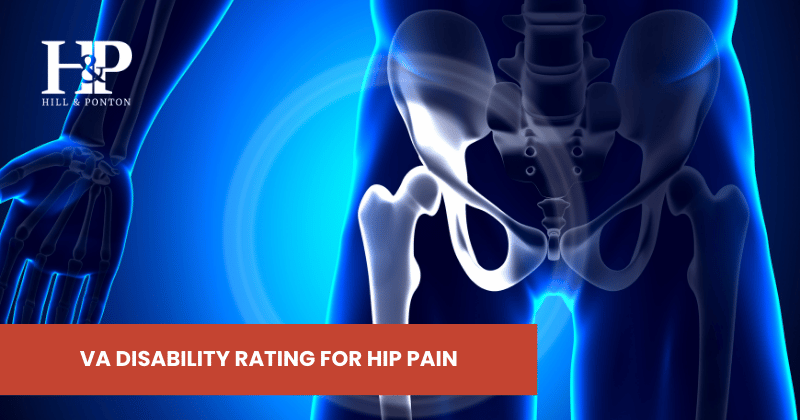Anemia is a blood disorder that causes extreme fatigue and weakness. Having this condition can make it challenging to complete everyday tasks, much less hold down a job. If you are a veteran of the United States military with anemia, the condition may qualify you for disability benefits paid through the Department of Veterans Affairs (VA). This blog discusses the medical condition in more detail and what you must do to receive VA disability for anemia.
How Does the VA Rate Anemia?
The VA lists the ratings for anemia under 38 CFR § 4.117 – Schedule of Ratings – Hemic and Lymphatic Systems. Each type of anemia has its own diagnostic code, which are as follows:
- 7714: Sickle cell anemia (rated at 10, 30, 60, or 100%)
- 7716: Aplastic anemia (rated at 30, 60, or 100%)
- 7720: Iron deficiency anemia (rated at 10, 30, or 100%)
- 7722: Pernicious anemia and Vitamin B12 deficiency anemia (rated at 10 or 100%)
- 7723: Acquired hemolytic anemia (rated at 0, 10, 30, 60, or 100%)
Sickle Cell Anemia
- 10%: You have an established case in remission but are asymptomatic. Your doctor has identified organ impairment.
- 30%: You experience one or two painful episodes in a 12-month period.
- 60%: You experience three painful episodes in a 12-month period or have symptoms not caused by light manual labor.
- 100%: You have four or more painful episodes in a 12-month period. The episodes can occur in the joints, skin, bones, or any major organ. Causes can include anemia, infarction, thrombosis, or residual symptoms absent light manual labor.
Aplastic Anemia
- 30%: You require an infusion of platelets or red blood cells or have an infection at least once in a 12-month period.
- 60%: You require an infusion of platelets or red blood cells or have an infection at least once every 90 days during a 12-month period. You may also use continuous therapy with an immunosuppressant agent.
- 100%: You require an infusion of platelets or red blood cells or have an infection at least once every six weeks over a 12-month period
Iron Deficiency Anemia
- 10%: You require an infusion of intravenous iron one to four times in a 12-month period or need continuous oral supplementation treatment.
- 30%: You require four or more intravenous iron infusions in a 12-month period.
- 100%: You require hospitalization for a stem cell or bone marrow transplant.
Pernicious Anemia and Vitamin B12 Deficiency Anemia
- 10%: You require continuous treatment with vitamin B injections, oral tablets, or nasal spray.
- 100%: You require a transfusion due to severe anemia or have central nervous system impairment including peripheral neuropathy, myelopathy, or encephalopathy.
Acquired Hemolytic Anemia
- 0%: You are asymptomatic.
- 10%: You require one course of immunosuppressant therapy in a 12-month period.
- 30%: You require two or three courses of immunosuppressant therapy in a 12-month period.
- 60%: You require four or more courses of immunosuppressant therapy in a 12-month period.
- 100%: You require a bone marrow transplant, continuous immunosuppressant therapy, or continuous intravenous therapy.
Regardless of the type of anemia you have, the VA will evaluate your diagnosis and symptoms to appropriately rate your condition.
What is Anemia?
Anemia affects the healthy development of red blood cells. Your body depends on red blood cells to deliver oxygen to its cells and provide you with energy. Fatigue and weakness are the most common outcomes for most types of anemia.

There are several types of anemia, and each has its own causes and symptoms. The condition can be temporary or long-term and range from mild to severe. Sometimes, anemia itself is a symptom of a more serious illness. You should not hesitate to schedule an appointment with your doctor if you suspect that you have developed anemia.
Symptoms of Anemia
The symptoms of anemia can vary considerably depending on the cause and severity level. Some people have no symptoms and only discover they have anemia when their doctor requests bloodwork for another condition. Other symptoms you might have in addition to fatigue and weakness include:
- Chest pain
- Cold hands and feet
- Dizziness or lightheadedness
- Headaches
- Irregular heartbeat
- Shortness of breath
- Yellow or pale skin
Causes of Anemia
Anemia develops when your body does not make enough red blood cells. If you bleed for any reason, your body cannot replace the blood you are losing fast enough to avoid developing anemia. Another possibility is that your body makes red blood cells at a typical rate, but an infection destroys them. Here are several other common causes of anemia:
- Your diet lacks Vitamin B12, or your body cannot absorb Vitamin B12
- Your diet lacks folate, or your body cannot absorb folate
- Inherited blood disorders such as thalassemia or sickle cell anemia
- Chronic health conditions prevent your body from having enough hormones to aid in the production of red blood cells. Typical examples include advanced kidney disease, hyperthyroidism, hypothyroidism, and lupus.
- You are losing blood quickly due to a condition such as hemorrhoids, gastritis, or ulcers.
Types of Anemia
When you receive a diagnosis of anemia, your doctor should specify one of the five types listed below.
- Sickle Cell Anemia: As part of a larger disorder known as sickle cell disease, sickle cell anemia is an inherited blood disorder that causes a lack of red blood cell development. This condition is typically present from birth and there is no known cure for it.
- Aplastic Anemia: This condition can occur suddenly when your body stops producing enough red blood cells. While the primary symptom is extreme fatigue, you are also more prone to infections and uncontrolled bleeding.
- Iron Deficiency Anemia: You can develop iron deficiency anemia when you do not eat enough foods containing iron. This type of anemia commonly causes shortness of breath.
- Pernicious Anemia and Vitamin B12 Deficiency Anemia: The most common type of vitamin deficiencies that cause this type of anemia are Vitamin B12, vitamin C, and folate. If you get enough of these vitamins in your diet and still develop anemia, it means your body has trouble absorbing them.
- Acquired Hemolytic Anemia: You can develop this type of anemia in response to a disease such as cancer, viruses, infections, or certain types of medication.
Can You Show Service Connection for Anemia?
To receive VA disability benefits for anemia, you must demonstrate a connection between your illness and military service. You could also qualify for benefits if anemia resulted from another service-connected illness (secondary service connection. This is often the case with certain types of cancers and kidney diseases. These diseases interfere with red blood cell production and cause the symptoms of anemia.
Another way you may qualify for VA benefits for blood disorders is when you can prove that military service worsened the condition of anemia you already had.

Did the VA Deny Your Anemia Claim?
If you submitted a claim for VA disability benefits for anemia and received a denial or received a rating lower than you expected, the law firm of Hill and Ponton can help. Please complete this case evaluation form or contact us at 1-888-373-9436 for more information.




